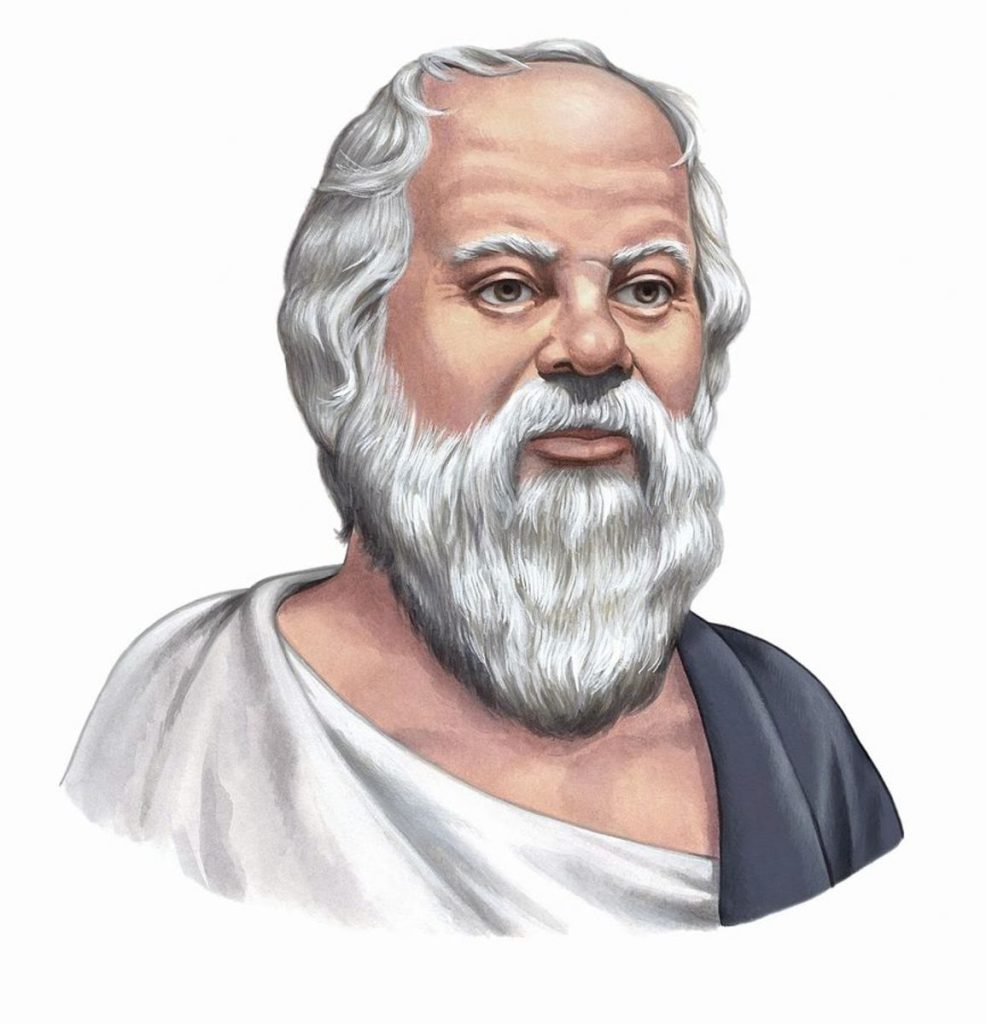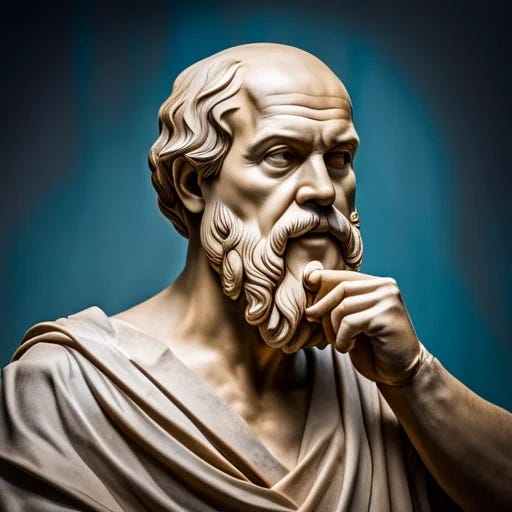by Socrates
Socrates (c. 470/469–399 BCE) was an ancient Greek philosopher considered one of the founders of Western philosophy. Born in Athens, he lived during a period of great intellectual and cultural development, often referred to as the Golden Age of Athens. Socrates did not write any philosophical texts, so most of what we know about him comes from his students, especially Plato and Xenophon, and from the plays of Aristophanes, who depicted him in his comedies.

Early Life and Background
Socrates was the son of Sophroniscus, a stonemason, and Phaenarete, a midwife. He was married to Xanthippe, with whom he had three children. Despite his humble background, Socrates received a good education, which was not uncommon in Athens at the time. His early career may have involved serving as a soldier, as he is known to have fought in the Peloponnesian War, displaying notable bravery.
Philosophy and the Socratic Method
Socrates is best known for his method of questioning, now known as the “Socratic Method.” Through dialogue and relentless questioning, he challenged his interlocutors to examine their beliefs critically, uncover contradictions, and approach deeper truths. Unlike the sophists of his time, who taught rhetoric for a fee, Socrates did not charge for his teachings and was committed to seeking wisdom, which he famously claimed to lack himself. His approach was primarily ethical, with a focus on questions of virtue, justice, and the good life.
Socratic Paradoxes and Influence
Socrates held that “no one does wrong willingly” and that knowledge is virtue. His beliefs laid the foundation for Platonic thought and, by extension, much of Western philosophy. Socrates’ ideas about the unexamined life being “not worth living” and his commitment to virtue influenced not only Plato but also other philosophers, such as Aristotle and later Stoic thinkers.

Trial and Death
In 399 BCE, Socrates was tried and sentenced to death on charges of corrupting the youth and impiety (introducing strange gods and not recognizing the state’s gods). In Plato’s Apology, Socrates defends his philosophy and actions, famously refusing to abandon his pursuit of truth. Ultimately, he was sentenced to die by consuming a drink containing poison hemlock. His death is depicted in various classical works, most famously in Plato’s Phaedo, which recounts his final moments surrounded by his students.
Legacy
Socrates’ ideas and methods significantly shaped Western thought. Through his disciple Plato and Plato’s student Aristotle, Socrates’ legacy lives on, marking the beginning of classical philosophy and inspiring countless later thinkers. His focus on ethics, virtue, and the pursuit of knowledge remains influential to this day.
